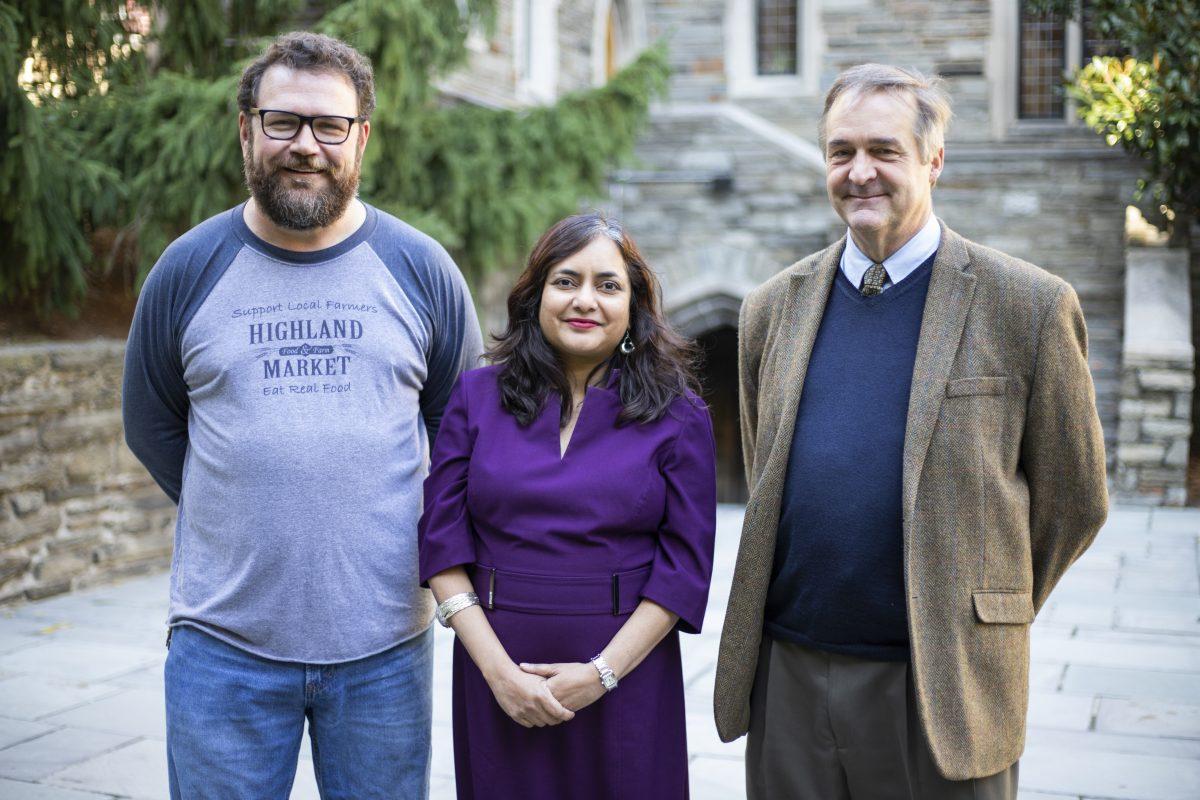Two university professors are spearheading a group for faculty to discuss environmental issues and facilitate conversations in the classroom.
Clint Springer, Ph.D., associate professor of biology and director of environmental science and sustainability studies, and Robert Daniel, Ph.D., assistant professor of modern and classical languages, are working with the Office of Teaching and Learning (OTL) to form a learning community on environmental justice.
“Having a group of faculty from many different disciplines talk about environmental justice and what it means on our campus specifically should have [a] lasting impact on the way we teach,” said Usha Rao, Ph.D., director of the OTL.
Earlier this year, the Jesuits announced four universal apostolic preferences to guide Jesuits around the world in their mission over the next decade. Inspired by one of the preferences, “care for our common home,” which is connected to environmental protection and sustainability, Rao said she decided to form a learning community on environmental justice at St. Joe’s.
The Jesuits’ new guiding themes also resonated with Springer.
“If you think about our Catholic and Jesuit identity and you think about the things that we’re hearing from the Catholic Church and from the Jesuit order, we have a responsibility to respond to that,” Springer said.
Daniel said he knows some faculty across campus are already engaged in this work in their own classrooms, but the learning community gives them a chance to come together, share and learn from one another.
“What we learn can help us teach particular issues or think about things in a way that enriches our teaching,” Daniel said. “Maybe somebody has some really cool activity or strategy and you use it in your own course. That’s the value of a learning community. We can learn from each other.”
Jeffrey Hyson, Ph.D., assistant professor of history, said he plans to participate regularly in the new learning community.
“When I saw the call, I reacted because one of my areas of teaching and research expertise is environmental history,” Hyson said.
Hyson said he aims to bring local examples of environmental crises into classroom discourse as much as possible.
“Just over the course of summer we saw natural disasters,” Hyson said. “And we’re still right now seeing natural disasters doing particular damage to the most vulnerable communities.”
Springer said the group plans to begin meeting in the next month and welcomes all faculty to attend.
“We’re all professional teachers, and we all have perspectives about how to communicate the importance of this issue effectively and to find out how it applies to our various fields,” Springer said.















































